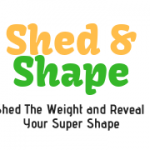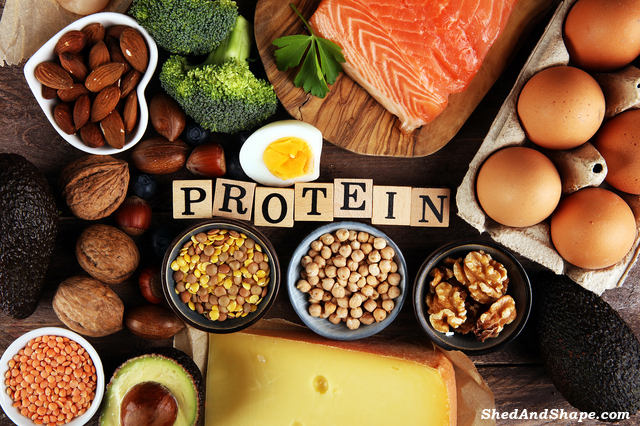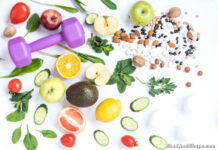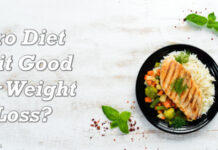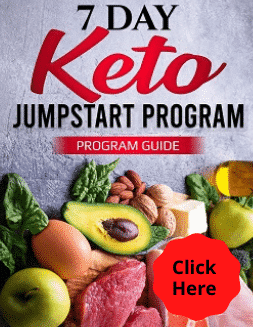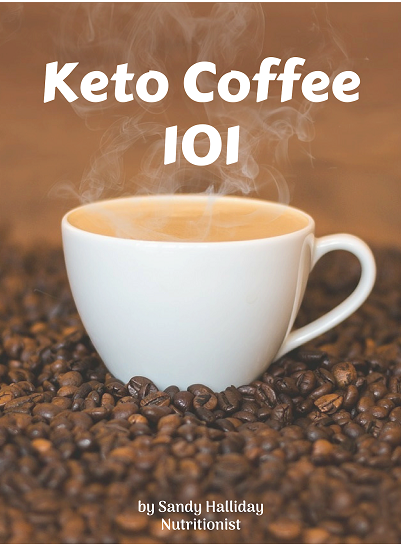The best protein for weight loss is one that can boost metabolism and reduce appetite. Along with fat and carbohydrates, protein is an important macronutrient that plays a crucial role in our body.
But not all proteins are created equal. And if you are trying to lose weight by following a low carb diet like keto, you should know how much and which type of protein is right for you.
On a keto diet, roughly 20% of the food you eat should come from protein. It’s the effect of the high fat and low carbohydrate intake that causes the weight loss. Because of the lack of glucose from carbohydrates the body makes ketones from stored fat which is used to produce energy.
By comparison the average American consumes about 16% of daily calories as protein but according to researchers a protein intake of around 30% of calories may be best for weight loss.
Related reading: Is A High Protein Diet Like Keto Bad for You?
If you eat too much protein on the keto diet some of the amino acids get turned into glucose which defeats the purpose of getting into ketosis. More is not better in this situation.
Protein sources
The protein can come from animals, such as beef, lamb, poultry, fish, and eggs. Some protein can also be derived from plants like vegetables, nuts, and seeds.
If you’re not following a low carb diet then you can also get some protein from pulses and grains. But which of these can help you to achieve your weight loss goals? To give you an idea, here are the best protein for weight loss.
Related reading: What Diet is Best for Weight Loss?
Best Protein for Weight Loss
Lean Meats
Lean red meats are a particularly good source of protein. They also provide a wide variety of nutrients like iodine, zinc, iron, vitamins, most especially B12, and essential fatty acids. Examples are beef, pork, veal, and lamb.
To get the most nutrients, always choose good quality meats, such as grass-fed beef. Compared to conventionally raised meat, grass-fed beef is naturally leaner and has fewer calories and a better ratio of omega 6 to omega-3 fatty acids.
When it comes to pork, tenderloin is the leanest cut. A research study published in the journal Nutrients has found that a diet that’s rich in lean pork could lead to a significant reduction in weight, body fat percentage, BMI, and waist circumference.
Seafood and Fish
When it comes to lean animal proteins, seafood and fish are also excellent choices as they’re loaded with vital nutrients such as heart-healthy omega-3 fatty acids. Also, they have generally less saturated fats and cholesterol compared to other animal proteins.
Seafood and fish also contain significant amounts of iodine needed for the proper functioning of the thyroid, which can improve metabolism and help with weight loss.
In addition, the omega-3 fatty acids derived from seafood may help to reduce inflammation that’s associated with obesity and metabolic diseases.
Here are some of the best choices of fish and seafood, and their protein content:
- Prawns – 24g per 100g
- Crabs – 20.5g per 100g
- Salmon – 20.4g per 100g
- Sardines – 19.8g per 100g
- Cod – 17. 5g per 100g
When buying shrimp or prawns it’s best to buy wild caught and avoid imported ones from fish farms that will contain many pollutants. The same applies to salmon.
Beans
When it comes to the best protein for weight loss, most people often think only of meat. But if you’re not an avid meat eater, you can turn to plant sources like beans. There are many different types of beans, but all of them contain a good amount of protein.
Beans are low in calories and because of the beneficial fiber they contain can help you feel fuller for longer. By keeping you feeling satisfied you will be able to resist snacking which is the downfall of many a dieter.
Researchers have noted that people living in the Blue Zones who are known for their longevity eat four times as many beans as Americans do. They eat a lot of plant food, very small amounts of meat and fish and hardly any sugar.
Mung beans contain 14. 18g of protein in every cup, while Pinto beans have 15.41g of proteins per cup. The other varieties that are high in protein are soybeans, lentils, cranberry beans, split peas, kidney beans, black beans, and navy beans.
Dairy
Dairy products like milk, cheese, and yogurt have high-quality protein that may help with weight loss. There are eight grams of protein in every glass of milk, while a hundred grams of cheese contains about 25g of protein, depending on the variety. As for yogurt, you will get 10g of protein for every 100g.
Remember that if you are following a low carb diet such as keto, you should choose dairy products with higher fat content. As for cheese, opt for the fattier and hard varieties such as feta cheese, parmesan, Swiss cheese, cheddar, and gouda.
As long as you have no allergy or sensitivity to dairy products, whipped cream, sour cream, as well as full fat and thick yogurts can also be included in your diet. They can help you feel full longer and could slightly boost your metabolic rate, making it easier for you to achieve and maintain weight loss.
Related reading: Which Foods Speed up Metabolism Best on Keto?
Eggs
There are 13 grams of protein for every 100 grams. Eggs are among the best protein for weight loss because they have a few unique properties that make them weight loss friendly.
Because of their high protein content, eggs are nutrient-dense and filling. They help to keep you feel full longer which reduces food intake during later meals. In fact, eggs rank high in the Satiety Index, a scale that evaluates how well foods can help you to feel full.
Adding eggs to your weight loss diet is great, but they should be eaten in moderation. An average adult with a moderate exercise routine must not consume more than two eggs a day.
It’s best to buy the highest quality eggs as possible. This means looking for pastured or organic eggs. They will contain the best range of nutrients.
The manner in which you cook the eggs is also important. Boiled eggs are great since they do not have any excess oil and added calories.
Nuts and Seeds
Nuts and seeds are another great source of protein for non-meat eaters. Aside from having a good amount of protein, nuts and seeds have high healthy fats, fibers, vitamins and minerals. All these can help with weight loss.
Related reading: Best Nuts to Eat On A Keto Diet
While all nuts have protein in them, some varieties provide more protein than others. For instance, 35g of almonds contain 7g of protein, 29g of walnuts have 4.5g of protein, while 30g of pistachios have 6g of protein.
Walnuts especially have also been shown by researchers to promote fat loss in the abdominal region. Having less fat in the abdominal region means a lower risk for developing chronic diseases such as diabetes and heart diseases.
High-Quality Protein Powders
If you are not getting enough protein from the foods you eat, consider supplementing with protein powders. But make sure you choose the right type of protein. Some protein powders contain a decent amount of carbs including sugar and additives that could wreak havoc in your weight loss diet.
Whey Protein Isolate is a great choice for those who follow low carb diets like keto, especially those who are trying to build muscles. Aside from helping you to achieve lean muscle mass, it can also decrease your appetite and hunger, which is great for weight loss.
Related reading: Benefits of Whey Protein Powder for Keto
Collagen Protein is another excellent choice of protein powder for a low-carb diet. This protein powder supports healthy bone metabolism and promotes a healthy level of appetite.
Final thoughts
The best protein for weight loss is derived from healthy whole foods like grass-fed meats, non farmed seafood, wild caught fish, beans, dairy, nuts, and seeds.
Although protein powders have a higher concentration of protein, they do not have other nutrients that naturally accompany the proteins found in whole foods.
Foods high in protein will not only help you lose weight, but also provide your body with vitamins, minerals, and other essential nutrients.
